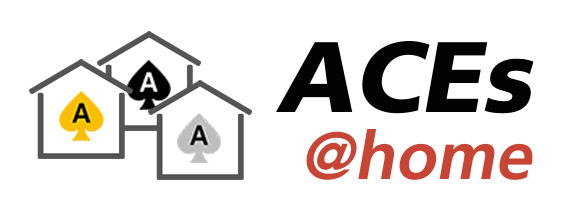
Wouldn’t it be great to hear and learn about some great topics while working from home?
No need to look any further – we have exactly what you look for!
Over the last weeks (and for some of the next weeks too) many Oracle conferences have been postponed or cancelled. This should not be a reason for stopping the sharing and learning which is why ACEs @home was started.
For the very first time we are really happy to have 12 great speakers on board, all parts of the Oracle ACE program. A big thank you to them to have joined this venture on such a short notice. For the moment, this is a unique event. Depending on your feedback we would be up for future editions with new content.
We targeted 3 main topics: Database, APEX and Analytics. 4 sessions per topic over the afternoon to not interfere too heavily with daily activities.
We will use the zoom.us web conferencing service and all sessions will be recorded and made available later. We kindly request attendees to register below. Our goal isn’t to collect contacts or send marketing content, but to have an idea of the number of people expected to be online so we can set up the appropriately sized solution. Attendance is free and open to everyone!
Beware: On Sunday, March 29th marks the start of Daylight Saving Time for Europe. Make sure to set your reminder for 1pm summer time.
Monday, March 30th
Analytics
13:00-17:00 CEST
(07:00-11:00 EDT)
Tuesday, March 31st
APEX
13:00-17:00 CEST
(07:00-11:00 EDT)
Wednesday, April 1st
Database
13:00-17:00 CEST
(07:00-11:00 EDT)
Sessions' descriptions
Monday, March 30th
Analytics
Upgrade to OAS: How and Why
Are you still working on a on-premise OBIEE? Then you must check out Oracle Analytics Server! OAS brings the latest features available on Oracle Analytics Cloud back to the on-premises world. In this session we’ll explore what is OAS, what benefits it brings for on-premises customer and what an upgrade looks like for both OBIEE 12c and 11g users. If you want to take the best out of your Oracle Analytics platform, then don’t miss this session!
Data Lineage made easy with Graph Databases
How do you track data lineage in your Analytical platform? OAC, OAS, OBIEE all provide some tools, but as soon as you really need a full data lineage you easily feel the limits of independent components. What if I tell you that you could easily have a full data lineage of your Analytical platform? Graph Databases will help you in that, and you will see how in this session.
ML new features in 19c & 20c
With each release of the Oracle Database new machine learning algorithms and features are being added. In this session we will explore some of these new machine learning algorithms and features available in Oracle 19c and Oracle 20c. Some of these will include RandomForest, Neural Networks, Time Series Analysis using Exponential Smoothing, XGBoost and Multivariate State Estimation Technique for anomaly detection. If time permits we will have quick look at some of the changes to the SQL scoring functions.
Does Your Data Have a Story? Find Out with Oracle Analytics
Oracle Data Visualization makes it easy to get insight from your data. This stunningly visual and intuitive analytics application enables you to access, blend, and wrangle a variety of sources including spreadsheets, databases, and applications, and ultimately tell the story of your data. In this session, we’ll learn about the capabilities of Oracle Data Visualization to create compelling analytic narratives and explore techniques to gain insights previously only accessible to advanced users. Attendees will experience a live demonstration of data storytelling.
Tuesday, March 31st
APEX
45 APEX Tips in 45 minutes
A fast-paced session with lots of useful APEX tips and tricks. You might already be aware of some, but I can guarantee that there will be new things for everyone.This won’t only be a slide fest; there will be many demos and enough time for questions.
APEX Bad Practices
We all make mistakes. Making mistakes is an opportunity to learn. But as a first step you have to recognise the mistakes you made.
If you don’t, those mistakes might evolve into a practice. A bad practice.
But you can also learn from someone else’s mistakes. And that is what you going to do when attending this presentation!
Can you do that with APEX? Building not so straight forward pages…
My philosophy is you want to stay as close as possible to standard APEX components. But sometimes from an end-user perspective, it would make a lot more sense and be more user-friendly if the page looks a bit different.
In this session, I will demonstrate a few examples of custom pages and how you can create something yourself. We will see the use of a PL/SQL Region, APEX items, AJAX Callback (Process), dynamic actions, some JavaScript and CSS.
Still, we try to stay as close as possible to APEX, so it’s easy to upgrade, but it will be totally different user experience and not just a report with a form.
APEX’s classic report: the power of no template
The classic report is on of the APEX components that are a bit undervalued. After a short introduction into the available templates and options we’ll quickly dive into more advanced options. The session will introduce concepts for creating highly adjustable reports which allow lots of user interaction, while still keeping close to the framework. After covering all the default options I’ll introduce the “no-template” concept which opens up the entire HTML toolbox at our disposal.
Wednesday, April 1st
Database
Learnings of Deployment Automation – How to start and what to consider!
Automated Deployments save a lot of time. In this session shares, learnings from real-life projects and discusses challenges when you want to automate the deployment of your database application.
When AWR is not enough, a.k.a. Why your app is not cloud-ready. #SMARTDB
Your report runs slow? DATABASE FAULT! Transaction performance is low? DATABASE FAULT! Application down again? DATABASE FAULT! And what about the rain? Wait, but what if not… ?
In this talk we will analyze SQL performance from an app perspective, by analyzing a TNS layer. To do this, we will use a TCPDUMP and a new tool – STADO – for analyzing SQL performance from the network layer.
I will show, how SQL execution times can differ, depending on the number of packets, single packet delay, and how we can tune it by designing applications in a proper way.
Mini session about Oracle database mutexes
There isn’t a lot of documentation about Oracle database mutexes. And probably for good reasons: most of the time they are not an issue. This sessions is about when mutexes do take a significant amount of time, what you see and how to diagnose.
Query Rewrite: The Supreme League of Materialized Views
Materialized Views are very useful to increase the performance of frequently executed queries. In many database applications, Materialized Views are accessed directly using SQL. However, the use of Query Rewrite is much more elegant and flexible: The optimizer decides independently whether a suitable Materialized View can be used to accelerate the query. The goal is to be able to improve the performance of different queries with the smallest possible number of Materialized Views. Query Rewrite offers excellent possibilities for this. Although Query Rewrite is available in Oracle databases for a long time, the feature is still unknown to many Oracle developers or is not used due to its complexity. This presentation shows the power of Query Rewrite, how it is configured correctly, what has to be considered when creating Materialized Views and which new features have been introduced in versions 12.2, 18c and 19c.
















